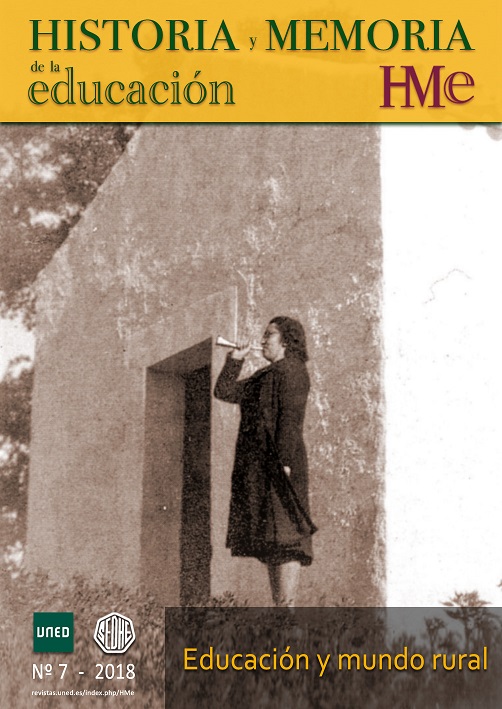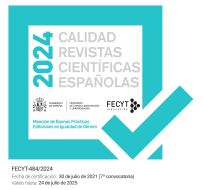Miguel Soler in the land of the brave. La Mina, Uruguay, 1954-1961
DOI:
https://doi.org/10.5944/hme.7.2018.19892Keywords:
School Nucleus, Fundamental Education, Rural education in UruguayAbstract
In 1954, one of the most innovative educational experiences of the decade took place in rural Uruguay: the First Experimental School Nucleus of La Mina. It was directed by Miguel Soler Roca, a Spanish-Uruguayan teacher who had been awarded a scholarship to study basic education in CREFAL,
shortly after the creation of this organism. In 1958 Margaret J. Anstee, Representative of the UN in Uruguay, went to La Mina to interview him. She thought that it would show the keys to the success of the proposal and would explore the possibility of exporting the experience as an inspiring model in other latitudes. The present text transcribes this interview, unpublished until now, contextualizing it with other documents that explain the development of this initiative.
Downloads
References
Comando General del Ejército (1978). Testimonio de una nación agredida. Montevideo: División de Publicaciones y Ediciones Universidad de la República.
Soler Roca, Miguel (2005). Réplica de un maestro agredido. Educar en Uruguay: de la construcción al derribo, de la resistencia a la esperanza. Montevideo: Ediciones Trilce.
Published
How to Cite
Issue
Section
License
Authors who publish in Historia y Memoria de la Educación agree to the following terms:
- Authors retain copyright and grant the journal right of first publication with the work simultaneously licensed under a Creative Commons Attribution-NonCommercial 4.0 International that allows others to share the work with an acknowledgement of the work's authorship and initial publication in this journal.
- Authors are able to enter into separate, additional contractual arrangements for the non-exclusive distribution of the journal's published version of the work (e.g., post it to an institutional repository or publish it in a book), with an acknowledgement of its initial publication in this journal.
- Authors are permitted and encouraged to post their work online (e.g., in institutional repositories or on their website) prior to and during the submission process, as it can lead to productive exchanges, as well as earlier and greater citation of published work (See The Effect of Open Access).










